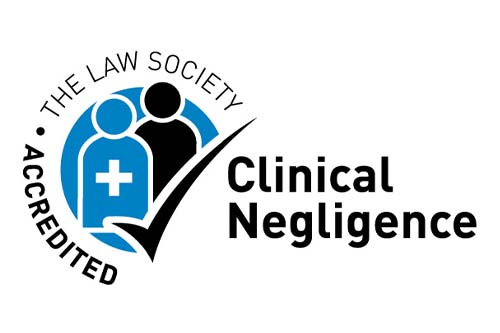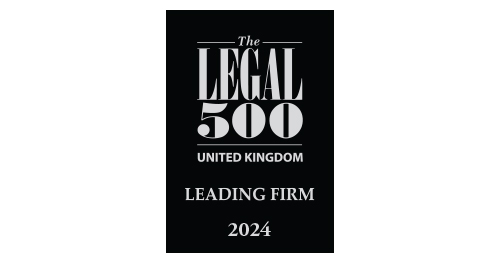

Make a claim for spinal surgery negligence
Sometimes poor outcomes occur even with the best possible care during and after spinal surgery. Occasionally though they result from negligent treatment, which may give rise to a claim for compensation – in which case, we can help.
Call us now for a free consultation on whether you have a claim
Experts in claiming for negligent spinal surgery. Experts in getting your life back.
Negligent spinal surgery can have a devastating impact. Together we can start the process of restoring and securing your quality of life.
Spinal surgery is, by its nature a hazardous undertaking. It involves working in close proximity to the spinal cord and of course that carries the risk of severe and life-changing injury.
We see every day how the consequences of negligent spinal surgery can be devastating to the injured person and their family. But we can help you. We have the team, we have the experience, and we have the proven track record. We are 100% committed to getting you the compensation you deserve and need.
There are a few instances in which negligence may occur in connection with spinal surgery, such as:
- failing to assess adequately whether a patient is suitable for surgery
- failing to inform the patient of the material risks associated with the surgery or of any alternative treatments available
- unnecessary surgery due to a misdiagnosis
- errors in the surgery itself – e.g. in a scoliosis correction procedure
- errors in anaesthesia
- failures in monitoring during the surgical procedure
- failures in monitoring after the procedure
- failure to refer a patient for postoperative treatment (e.g. physiotherapy)
- Experience of a wide spectrum of spinal injuries
- Offices serving all of England & Wales
- Accredited by the Law Society, APIL and AvMA
- No win, no fee funding available
If you would like to speak to our team, please contact us on







contact us
Contact our spinal injury specialists today
Frequently Asked Questions
In order to give proper consent to having an operation, a patient must be informed of all “material” risks (i.e. all those which they would wish to know about). The risks must also be accurately presented.
In one recent case, a patient was found not to have given true consent because the percentages of various risks of complications presented to her were not correct. It was found by the court that if she had been given the accurate figures she would not have had the operation and would not have suffered the injury which occurred during the procedure. She recovered compensation.
In another case, a patient’s operation was carried out by a surgeon who was not the surgeon she was expecting. She was found not to have consented to the procedure, as she only wished one particular very well-known and pre-eminent surgeon would operate. She therefore recovered compensation for the damage caused during the operation, even though that damage arose from an accepted risk of the operation.
The amount of compensation you might receive will obviously depend on the severity of the injury suffered.
Cases of paralysis will attract awards of damages running into millions of pounds, as they necessarily involve claims for 24 hour care, adapted accommodation, equipment, therapies and so on.
At the lower end of awards, if spinal surgery results in ongoing pain and restriction in activities, the award may be in tens of thousands of pounds. In the middle a substantial claim for loss of earnings, where an injury prevents a claimant from working again, may result in an award in the hundreds of thousands.
Usually court proceedings must be issued within three years of the surgery which caused the injury. If, however, the damage done is not immediately evident, the three year period may run from when you gained knowledge of the damage having been done to you.
If your operation was carried out on the NHS, and the error was negligent, you can sue the NHS. If your operation was performed privately you would sue the individual surgeon.
This is quite heavily dependent upon the complexity of the claim. The range is between two years to five years for the majority of claims. We pride ourselves in progressing claims to their conclusion in the shortest time possible, while maximising the compensation to which you are entitled.
The vast majority of our spinal injuries claims are funded by way of a Conditional Fee Agreement (“no win no fee”).
Trusted partner of the Spinal Injuries Association
Our specialist team of spinal cord injury solicitors is a Trusted Legal Partner of the Spinal Injuries Association, so you can be sure that your claim will be handled sensitively and by genuine experts in this area of personal injury.
Negligence is defined as care falling below the standard of the competent surgeon, but you may be helped to understand what this means in practice by some of the examples of cases we have seen.
Sadly, one of the more common types of error in spinal surgery occurs when a surgeon operates at the wrong level of the spine. We have seen cases where, for example, the intention was to carry out a laminectomy at L2/3, and the surgery was mistakenly carried out at L1/2. Such an error will usually not be defensible.
We have also seen cases where there were failures in monitoring during a spinal operation. It is essential during spinal procedures, which are often very lengthy, to monitor blood pressure and heart rate, which may be indicators of dangerous levels of haemorrhage and/or ischaemic spinal cord injury. It is also mandatory in some forms of spinal surgery to monitor the function of the spinal cord itself, by monitoring “sensory” signals and “motor” signals, either from the spinal cord itself or from the patient’s limbs. Failure to carry out such monitoring of the spinal cord, or to do so competently, will usually be negligent.
A third category of cases which we have seen in practice, relates to failures in post-operative monitoring. Following spinal surgery it is essential to carry out a functional neurological assessment as soon as the patient wakes up from surgery. Close attention should be paid to whether the patient may have suffered any form of paralysis – simply asking the patient to wiggle his toes is a valuable step to take immediately upon waking. Attention should also be paid to whether there might be any form of nerve root damage or bladder dysfunction which might require urgent repeat surgery.
If you think you have a claim, call us now for a free consultation















